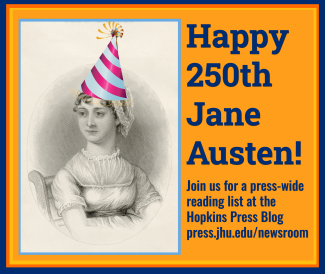Newsroom
Filter
Dignity for Deeply Forgetful People
In Dignity for Deeply Forgetful People: How Caregivers Can Meet the Challenges of Alzheimer’s Disease (John Hopkins University Press; May 31, 2022), was written to help caregivers and to make a new language that allows our culture to value seeing and...

Patriotism, Schools, and the Public
As a young public school student growing up in rural Montana, I don’t recall wondering why there was an American flag hanging in every classroom. Similarly, perfunctory recitations of the Pledge of Allegiance seemed a natural part of the day, like morning...

Beyond Madness
I learned a lot about mental health in graduate school, but very little about mental illness. Sadly, my family taught me about that. My first glimpse of mental illness came in 1966 when I was 12. That October, my 43-year-old mother—the beautiful woman with a...

The Racial Politics of Periodization
The journal New Literary History focuses on questions of theory, method, interpretation, and literary history. By examining the bases of criticism, the journal provokes debate on the relations between literary and cultural texts and present needs. The journal...

A Mother's Day Collection
Mother’s Day is an annual celebration of motherhood’s immense value. In honor of this holiday, Hopkins Press has compiled a list of journal articles encompassing the many facets of motherhood: historical accounts of motherhood, poets’ commemorations of their...

Patricia Matthew on "Race, Blackness, and Romanticism"
The recently released Spring 2022 issue of Studies in Romanticism is a special issue titled "Race, Blackness, and Romanticism", guest edited by Dr. Patricia A. Matthew of Montclair State University. We asked Dr. Matthew to provide some background on this...

Boomer to Doomer: Earth Defenders Don’t Despair!
For the first Earth Day in 1970, my eighth grade Earth science teacher asked the class what worried us about the environment. I said the proposed Alaska pipeline could leak; others spoke of dirty air and water. Our concerns were genuine and serious, but no one...

50 Years of Provocative Diacritics Covers
Founded in 1971, Diacritics publishes original work in and around critical theory, broadly conceived. Diacritics offers a forum for thinking about contradictions without resolutions; for following threads of contemporary criticism without embracing any...

Russian Universities During and After Putin
The invasion and brutal attack by Russian forces on Ukraine has brought tremendous suffering to millions of Ukrainians, including those in higher education sector. Dozens of universities have been bombed, and hundreds of thousands of students and academics...

Mental Disorder and the Boundaries of Illness
Can we draw a boundary that places some of our moods, experiences, beliefs, and behaviours within the remit of mental disorder and so within the province of psychiatric care? Can we assert that this person’s sadness is no longer continuous with everyday...

